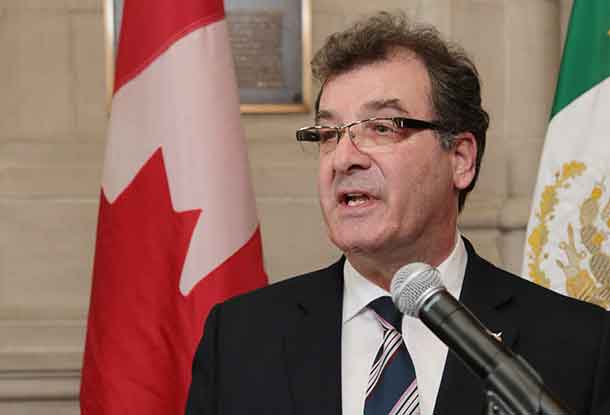
by Bob Nault MP
KENORA – POLITICS – Earlier this month, Dianne Saxe, the Environmental Commissioner of Ontario, released “Climate Action in Ontario: What’s Next?” It is a 2018 Greenhouse Gas Progress Report which outlines a plan to combat climate change, suggesting the provincial government should: commit to targets and laws, plan a pathway forward, take action and monitor progress. Perhaps, most importantly, it stresses consulting with Ontarians in developing a provincial climate plan.
According to the Commissioner’s report, in 2016, greenhouse gas emissions were at their lowest since emissions reporting began in 1990. The report attributes this decrease to closing coal plants, promoting conservation efforts, and the 2009 Green Energy and Green Economy Act, among other initiatives. While these efforts were not by any means perfect, greenhouse gas emissions dropped while the economy and population continued to grow.
The report highlights indicators of climate change that we are very familiar with in Northwestern Ontario. The five hottest years on record have all occurred since 2010, and globally, 2016 was the warmest year ever recorded. As a province, Ontario is warming faster than the global average, and its average annual temperature has already increased by 1.5 ℃ since 1948.
This temperature increase plays a part in heat waves, extreme cold events, and heavy rainfalls, resulting in forest fires, air quality issues, and a rise in tick and mosquito-borne diseases. The average annual temperature in Ontario is expected to continue to rise, and some of the greatest increases are expected in Northern Ontario.
In September, Ontario’s provincial government moved forward with repealing the original Green Energy Act 2009 – the same Act the Environmental Commissioner highlighted as a major contributor to lowering greenhouse gas emissions. The provincial government has also moved to cancel Ontario’s Drive Clean Program, which is aimed at reducing vehicle emissions.
We can clearly see the impacts of climate change in the North; it can’t be denied, the evidence is in our own backyard. The provincial government’s decision to repeal the Green Act and cancel the Drive Clean program contradicts the scientific evidence.
Just recently, I addressed parliamentarians throughout our hemisphere during ParlAmerica’s 3rd Gathering of the Parliamentary Network on Climate Change. What was abundantly clear to everyone is that climate change has no borders and that we must act now, because time is not our ally. I learned from my colleagues from the Caribbean, the extent to which hurricanes have devastated entire communities; and just as they rebuild, the next hurricane season arrives.
I also spoke about the extreme weather events (forest fires, tornados, etc.) that we are experiencing in Canada and in the riding. Many Northerners depend on natural resources for their livelihoods and with the increased frequency and intensity of forest fires, climate change is not something we just want to think about, because we know it’s real – and the time for debate is over.
As a country, we are a global leader in clean and renewable energy, and we are committed to a clean growth economy to fight climate change and create jobs for Northerners. In order to do this, all levels of government must work together on a plan to tackle climate change that protects our environment for generations to come.
Bob Nault MP







